The Winnipeg Jets have been an enigma through their first five games of 2022-23. They’ve played to a 2-3-0 record with their overall performance varying widely game by game and period by period.
There are some things to like, but also many things to critique. Here are five takeaways from the Jets’ first five contests.
1) Jets Struggling With 60-Minute Efforts
One can tell the Jets are trying to play the “Rick Bowness” way — faster, harder, and more aggressive — but they haven’t been able to do it consistently so far in the early stages of this critical season where they’re trying to regain relevance.
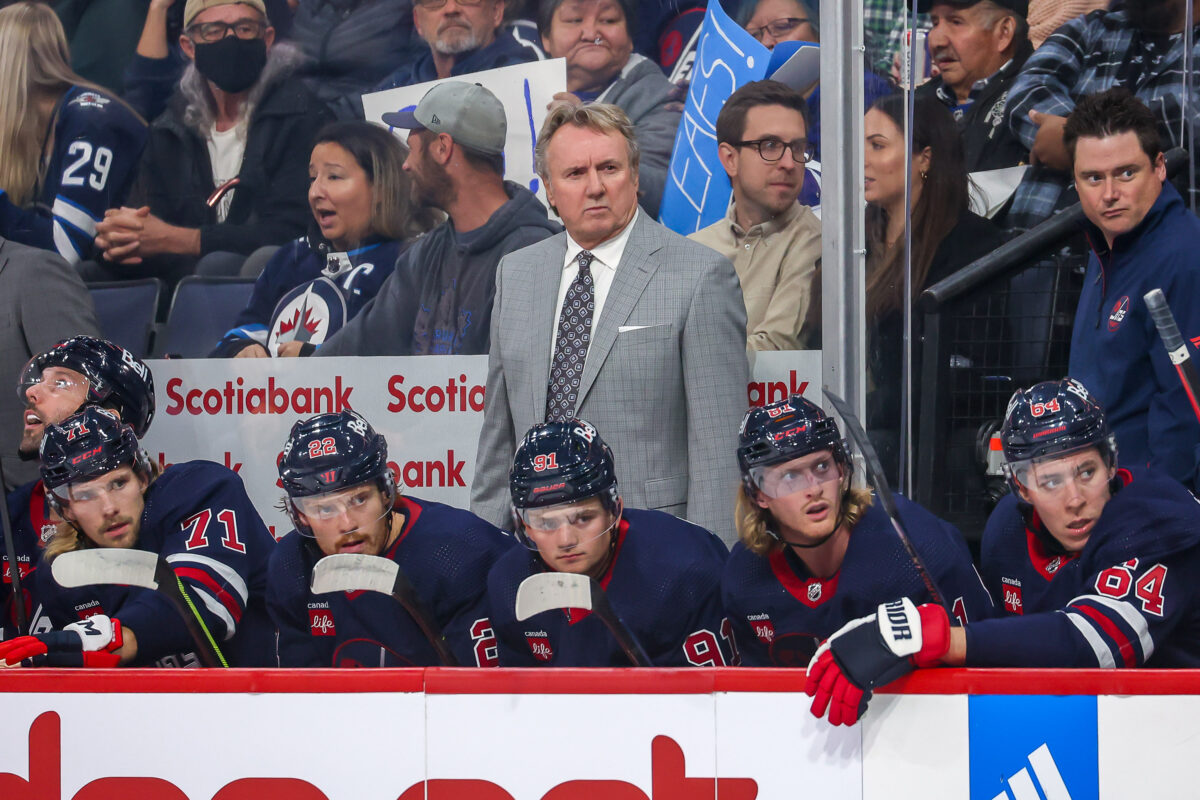
The Jets have yet to excel in a game from start to finish, understandable considering they’re still trying to learn systems that are much different from those the bulk of the core got used to under former head coach Paul Maurice.
Second periods have been a particular point of concern. In four games — against the New York Rangers, Dallas Stars, and Colorado Avalanche, and Toronto Maple Leafs — the Jets sagged after a strong start.
Twice, they’ve overcome it. In the home-opener against the Rangers, they played a nearly picture-perfect first, were dominated in the second, and pulled out a 4-1 victory thanks to three third-period goals. Against the Avalanche, they led 2-0 after the first and 3-1 in the second before allowing back-to-back goals to the defending Cup champions late in the frame. The third was scoreless and the Jets triumphed in overtime.
Twice, it’s sunk them. In Dallas, Mark Scheifele scored early and the game was tied after the first, but in the second gave up two late ones and never recovered.
It was a similar story in Winnipeg in the all-Canadian matchup. PIerre-Luc Dubois scored early, and the game was fairly even through 35 minutes, tied 1-1. With just over five minutes left in the second, a defensive breakdown in front of the net by Dylan DeMelo and Mark Scheifele led to the Leafs’ go-ahead goal. Some inconsistent officiating thereafter rattled the Jets further and allowed the Leafs to double their lead with power play marker before the period ended. The Jets pushed back in the third but could not solve Ilya Samsonov.
Two nights prior against the Golden Knights, the second period effort was strong, but they came into it trailing 4-0 after a disastrous first. They deserve some credit for pushing back in the final 40, managing to cut the lead in half before an empty-netter against made the final 5-2.
“That’s what hurts after the game is over. You know you played a good 40 minutes, but unfortunately it’s not a 40-minute game,” defenseman Nate Schmidt said after that game.
Backup goaltender David Rittich — who made his first start of the season in the loss — added “if we’re going to learn from it, we have to play the full 60 minutes, be ready from the start, and be battling and be ready.”
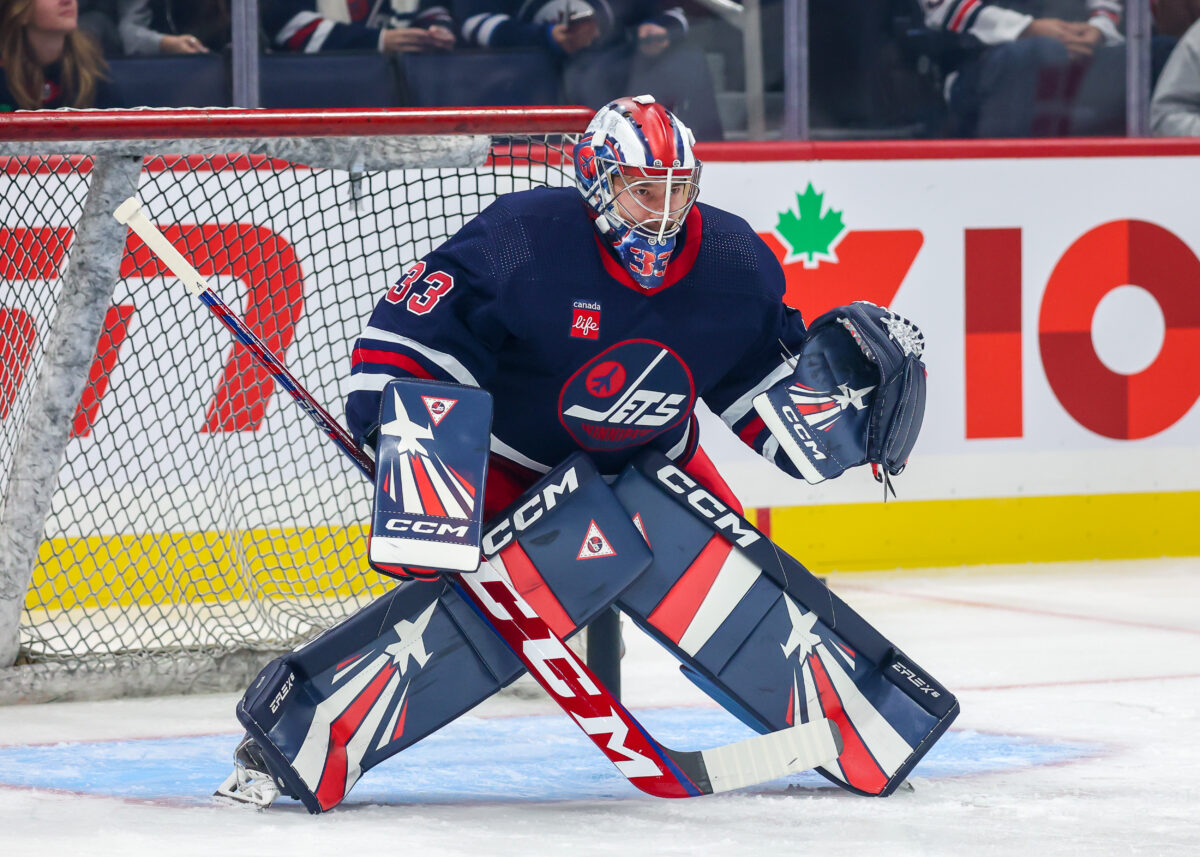
Associate coach Scott Arniel — who filled in for Bowness while Bowness recovered from COVID-19 — said the Jets didn’t execute any of the things the coaching staff has been focusing on in that first period. “It’s a lesson learned,” he said. “This league is a tough league. And if you don’t come prepared to play those things are going to happen.” (From ‘Jets can’t recover from slow start in 5-2 loss to Golden Knights’, Winnipeg Free Press, Oct. 20, 2022.)
The transition is obviously far from complete even though the collective will seems there. The team should become more consistent over time and Bowness actually being behind the bench from now on to reiterate priorities and provide on-the-fly feedback should help as well.
2) More Aggressive Defensive Play Has Brought Inconsistent Results
Speaking of consistency, the defence’s attempts to carry out one of Bowness’ main new priorities has garnered inconsistent results.
Bowness has stressed to his blue-liners that they must jump up in the rush frequently and contribute more offence. He said in late September that the 24 goals provided by Jets’ d-men last season wasn’t “close to good enough” and that he wanted them to score around 40 this season.
The d-men have certainly taken his directive to heart — a promising sign they’re buying in — and sometimes, pinching and activating has worked out well. Neal Pionk has scored three goals already, matching his total in 77 games last season.
Remarkably, none of Pionk’s goals have come from the point. Against the Avalanche, he scored from the slot in the first and on the rush in overtime, and against the Golden Knights, he scored from the “home plate” area. Those things would not have happened under Maurice.
Unfortunately, PIonk is the only defenseman with a goal and the new strategy has also burned the Jets — opponents have taken advantage on transition after d-men put pucks to the net or got caught too deep. For example, on the Golden Knights’ game-opening tally, an ill-advised pinch and shot from DeMelo left Logan Stanley all alone to defend a three-on-one, and the big man played it badly.
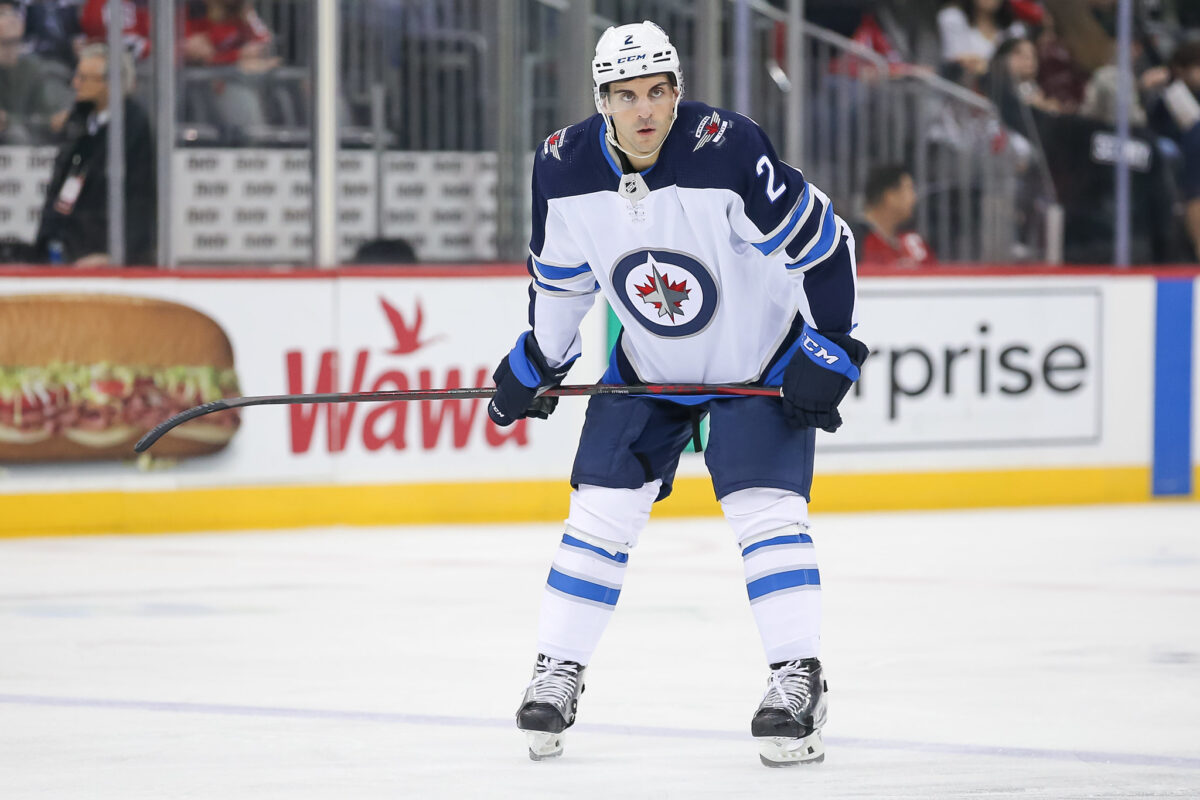
The Jets allowed far too many high-danger chances last season — 1100 in total (13.41 per game) and Connor Hellebuyck got extremely burnt out by the amount of rubber he faced. So far this season, they’ve allowed an average of 12.8 high danger chances per game but need to cut that number further.
3) Jets Have Had Fair Share of Adversity Already
Injuries and absences impact every team — and they cannot be used as an excuse — but adversity has come knocking early.
As mentioned above, Bowness was sidelined with COVID for the first four games, with his positive test coming just hours before the home opener. The timing was hardly ideal considering he’s the guy being banked more than anyone to turn the Jets fortunes around and wasn’t there to help the team adapt to his systems on their first road trip (he participated via Zoom where he could.)
The Jets are also without one of their biggest offensive threats. Nikolaj Ehlers — the skilled, speedy Dane who was finally getting the first-line and power play ice time he’s deserved for years but never got from Maurice — took a shot to his hand against the Stars and hasn’t played since; he was placed on injured reserve and will be out seven to ten days, Bowness said Saturday.
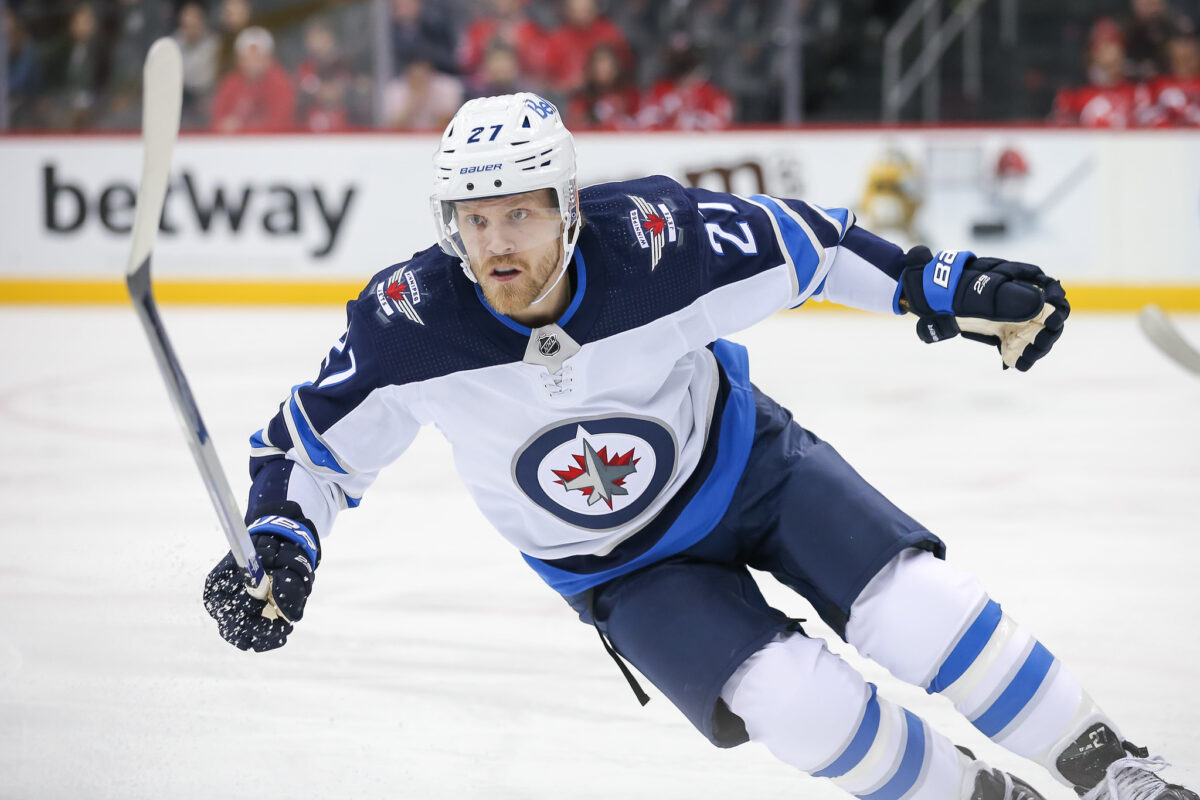
Dylan Samberg is also day-to-day. He replaced Stanley for the game against the Avalanche as Stanley struggled mightily in the first three contests, but had to sit out against the Golden Knights and Maple Leafs.
Arniel managed the bench in Bowness’ stead, while Mason Appleton has drawn the first-line right-wing assignment in Ehlers’ absence. Appleton has two assists in the role but he is not the long-term solution.
4) Jets Not Getting Enough Scoring
There was some concern heading into the season that by loading up the top line with Ehlers, Kyle Connor, and Scheifele, the other three lines wouldn’t be able to produce enough offence.
The concern now is for the the Jets’ offence in general. The Jets have just 12 goals this season, and their shooting percentage is 8.2 per cent, down from 9.5 per cent last season.
The first-line has indeed produced the most — Scheifele leads Jets’ forwards in goals with three and Connor has one — but the line didn’t produce a goal against the Golden Knights or Maple Leafs. Connor, who scored 47 goals last season, is off to a particularly slow start — he has 15 shots but has not scored on a goaltender.
The second line took two games to find twine but has picked it up. Cole Perfetti, Dubois, and Blake Wheeler have produced a goal in each of the past three games and have 11 points between them.
The third line — Morgan Barron, Adam Lowry, and now Saku Maenalanen since Appleton moved up — have had some good pressure shifts and chances off the rush but have also displayed a total lack of finish. They have just three assists and no goals.
Fourth-liner Sam Gagner, also drawing time on the second power play unit, has been the exception on the bottom six as he has a pair of goals, including the game-winner in the late third against the Rangers.
Bowness’ comments after losing to the Leafs sum up well the general experience so far: “We had some good looks and just didn’t capitalize on them… we had some really good looks but they just didn’t go in.”
5) Ice Time Has Been More Balanced
Gone are the days of fourth-liners playing only four or five minutes a night and some players nearing 22-plus. The new coaching staff has given every player meaningful minutes to work out the kinks and contribute.
Connor, Scheifele, and Wheeler’s ice times are all lower — Wheeler’s ice time has dropped more than three minutes from 19:32 to 16:23, a more manageable workload for the 36-year old who was stripped of the captaincy — while Appleton, Barron, and Ehlers’ ice times are all higher.
Related: Jets’ Bowness Makes Gutsy & Necessary Decision With Wheeler
Even the fourth line is getting around 10 minutes per night, with the only players under that David Gustafsson and Axel Jonsson-Fjallby.
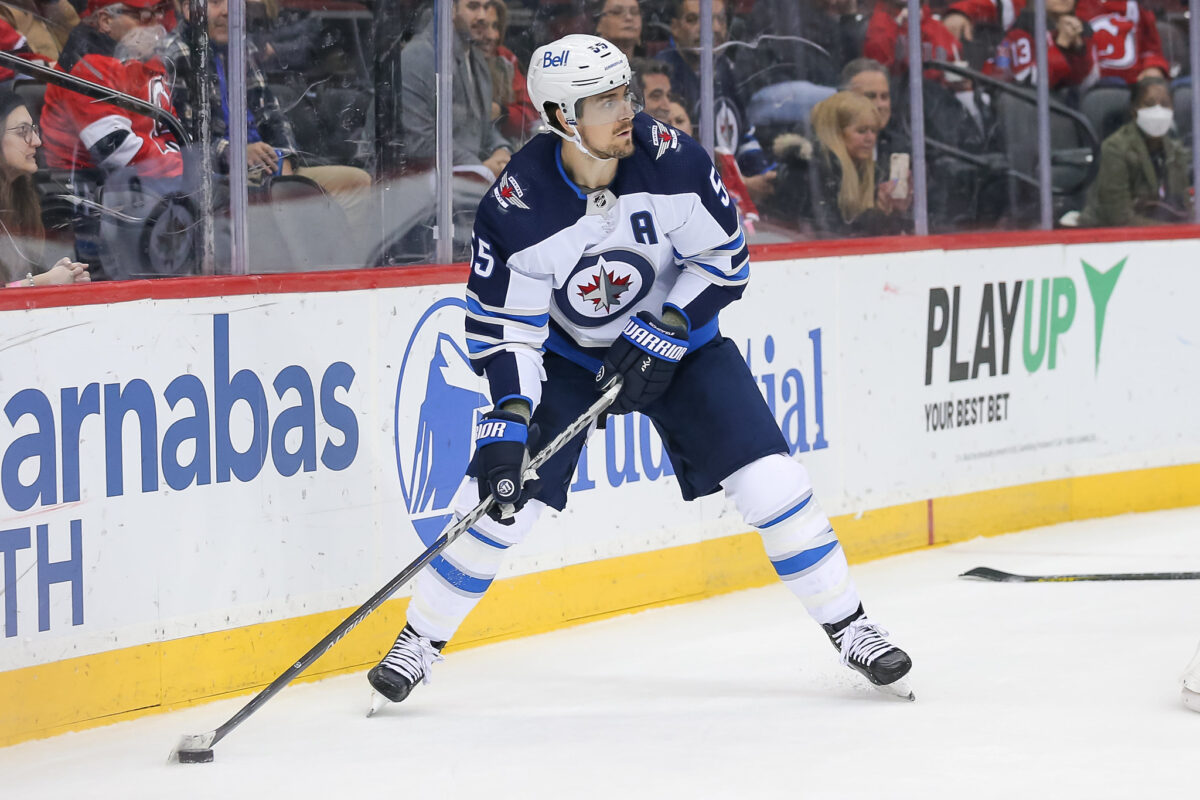
The differential between the highest and lowest ice time forward is 12:58, while last season under Maurice it was 17:41 (when eliminating Gustafsson, who got knocked out in the first period of both NHL games he played in 2021-22 and therefore averaged 2:08.)
Distributing ice time more evenly should keep everyone just a bit fresher for the back half of the season, when minor injuries nag and the physicality starts to take its toll.
Jets Will Seek More Consistency In Next-Five Game Stretch
The Jets are back in action Monday as they complete the quick two-game homestand by welcoming the well-balanced St. Louis Blues to Canada Life Centre.
They then embark on a three-game road trip that sees them face the Los Angeles Kings (Oct. 27,) Arizona Coyotes, (Oct. 28) and Golden Knights again (Oct. 30.) After that, they’ll return home to face the Montreal Canadiens (Nov. 3.)
The Jets will want to build on the good things and correct some of the bad in the next stretch of five, ideally winning three so they can sit .500 through 10.